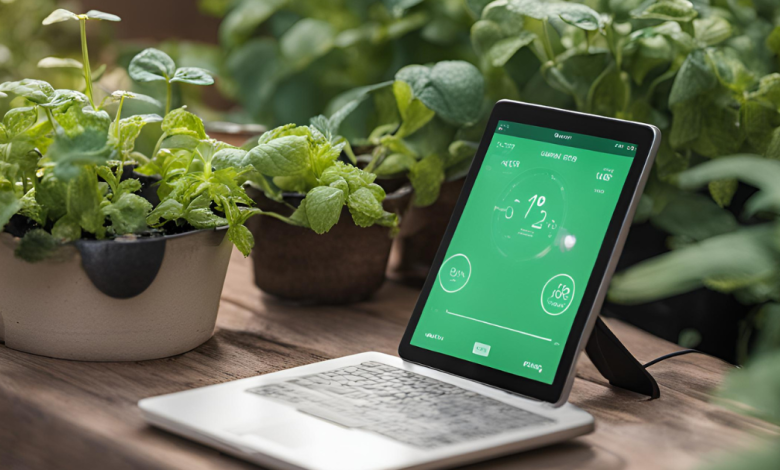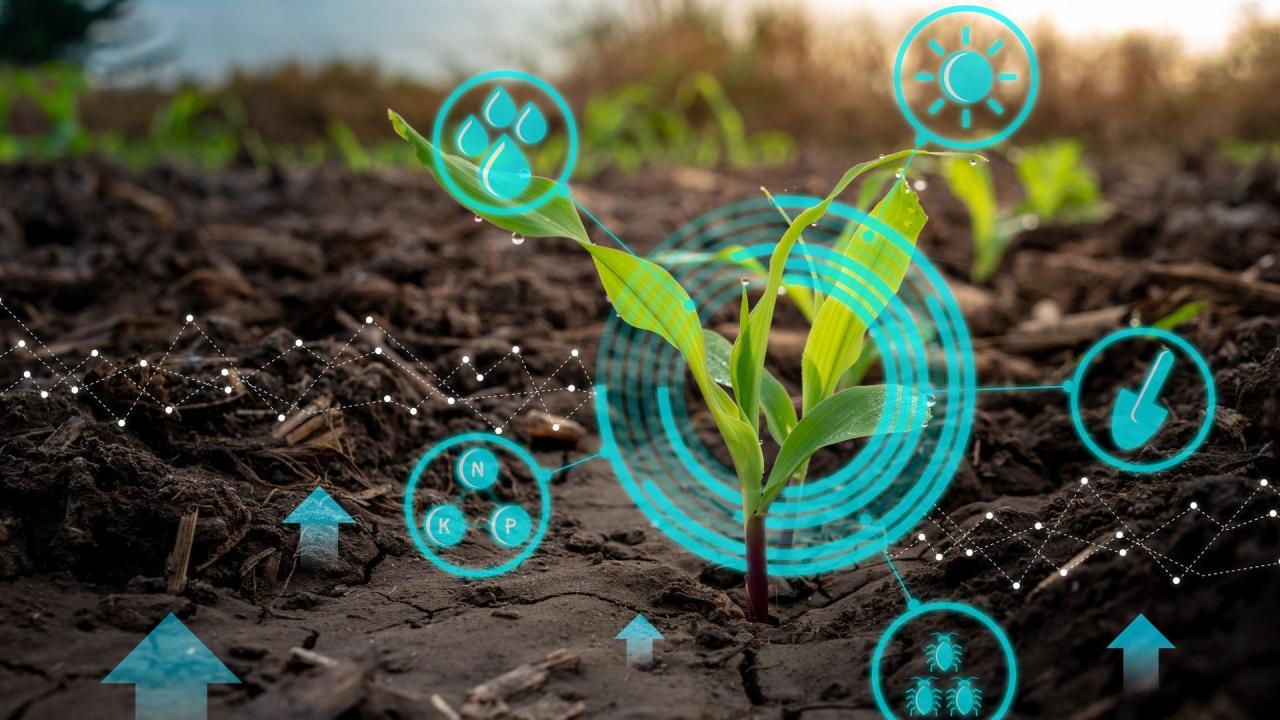AI‑Powered Plant Sensors Rise

The gardening world is undergoing a technological transformation with the rise of AI-powered plant sensors. These innovative devices are changing how we care for plants, offering real-time monitoring, predictive analytics, and automated care recommendations. This comprehensive guide explores how smart plant sensors work, their benefits, top models available, and why they represent the future of gardening.
What Are AI-Powered Plant Sensors?
AI-powered plant sensors are smart devices that monitor plant health by tracking key environmental factors. They combine IoT connectivity with machine learning to provide actionable insights for optimal plant growth.
A. Core Monitoring Capabilities
-
Soil moisture levels (prevents over/under-watering)
-
Light intensity & duration (ensures proper photosynthesis)
-
Nutrient levels (detects deficiencies)
-
Temperature & humidity (protects against environmental stress)
B. Advanced AI Features
-
Species-specific care recommendations
-
Growth pattern predictions
-
Disease detection before visible symptoms
C. Connectivity Options
-
Bluetooth/Wi-Fi for real-time alerts
-
Integration with smart irrigation systems
-
Cloud-based data tracking
Top 5 AI Plant Sensors of 2025

1. Parrot Pot (Best for Indoor Plants)
✅ Key Features:
-
Self-watering system with 2L reservoir
-
4-sensor array for comprehensive monitoring
-
iOS/Android app with plant encyclopedia
Best For: Urban gardeners with limited time for plant care
2. Xiaomi Flower Care (Best Budget Option)
✅ Key Features:
-
Tracks light, moisture, fertility & temperature
-
Bluetooth connectivity
-
$20 price point
Best For: Beginners wanting affordable plant monitoring
3. Edyn Garden Sensor (Best for Outdoor Use)
✅ Key Features:
-
Solar-powered operation
-
Weather prediction integration
-
Custom fertilizer recommendations
Best For: Vegetable gardens & large outdoor plantings
4. Koubachi Wi-Fi Plant Sensor (Most Advanced)
✅ Key Features:
-
AI that learns your plant’s behavior
-
Watering alerts via email/app
-
Supports 7,000+ plant species
Best For: Serious gardeners & plant collectors
5. PlantLink (Best for Irrigation Integration)
✅ Key Features:
-
Automatically controls drip systems
-
Multiple sensor network capability
-
Detailed water usage analytics
Best For: Large gardens & commercial growers
How Smart Sensors Transform Plant Care
A. Precision Watering
-
Reduces water waste by up to 30%
-
Prevents root rot from overwatering
B. Optimal Growing Conditions
-
Recommends ideal lighting positions
-
Alerts when to move plants seasonally
C. Early Problem Detection
-
Identifies pests/diseases before spread
-
Warns of nutrient deficiencies
D. Data-Driven Improvements
-
Tracks growth patterns over time
-
Creates customized care schedules
Smart Sensors vs Traditional Gardening

| Feature | AI Sensors | Traditional Methods |
|---|---|---|
| Accuracy | ✅ Scientific measurements | ❌ Guesswork |
| Time Savings | ✅ Automated monitoring | ❌ Manual checking |
| Problem Detection | ✅ Early warnings | ❌ Visible symptoms only |
| Water Efficiency | ✅ Precise control | ❌ Often wasteful |
| Cost | $$$ Initial investment | $ Low startup cost |
Verdict: Smart sensors save money long-term through healthier plants and resource conservation.
Emerging Technologies in Plant Monitoring
A. Robotic Plant Inspectors
-
Autonomous drones for large-scale monitoring
B. DNA Soil Analysis
-
Microbial activity tracking for soil health
C. Augmented Reality Guides
-
AR overlays showing ideal pruning points
Choosing the Right Plant Sensor
Key Considerations:
-
Indoor vs Outdoor Use
-
Number of Plants Monitored
-
Power Source (Battery/Solar)
-
App Functionality
-
Integration Capabilities
The Future of Smart Gardening
By 2026, expect:
-
Full garden automation systems
-
Plant-to-human communication via AI
-
Fully self-sustaining indoor gardens
Final Verdict: Are Smart Sensors Worth It?
✅ Worth It For:
-
Busy professionals
-
Plant enthusiasts
-
Commercial growers
❌ Wait If:
-
You have few, low-maintenance plants
-
Prefer traditional gardening methods